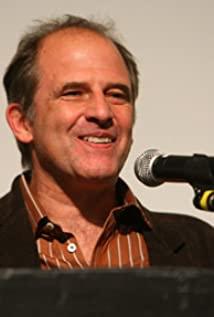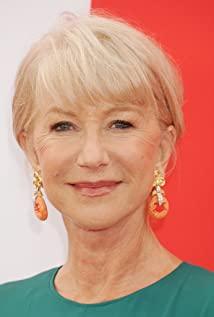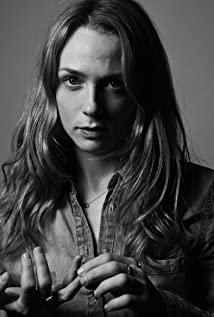Tolstoy said to the youth that he found that the ultimate truth common to all religions was love. Such statements can only come from such a great genius, and any mere mortal could easily be dismissed as frivolous or bloody. And the youth (and the fans around him) are trying to practice "Tolstoyism". He was well-behaved, plainly and neatly dressed, diligently abstinent, and worked tirelessly to cultivate a perfect soul. But Tolstoy recalled to him a girl he had experienced in his youthful wanderlust, her body, her smell, the way she made love. To paraphrase Tolstoy himself many times: I am not a good Tolstoyist myself. Seeing this, I can't help but sigh, yes, this should be the look of the person who wrote "Resurrection" in my heart.
In the story, people are divided into two camps: the faction headed by Vladimir Charkov, who prides themselves on being noble, strongly encouraged Tolstoy to amend his will and give up all copyrights. In order to achieve this goal, even unscrupulous, partnered to deceive a virtuous family. They worship Tolstoy, claiming that they understand and support his thoughts the most, they are sanctimonious, and they hold the commanding heights of morality. On their opposite side, Tolstoy's wife Sophia fought alone. This woman is shrewd, strong, and tasteful, and she will leave the copyright as a wealth to her family and her children. She knows Tolstoy best, and she is devoted to the elegant worldly life, and once provoked, she becomes a model of Hedong Lion.
The youth should have been obliged to belong to the first team. However, during his contact with Sophia, he was uncontrollably moved by the straightforward sensibility of a woman like Sophia, so he swayed between the two camps. At this time, he fell in love with a "Sophia" girl, Martha. The heart struggles between perfect morality and the desire to obey. In the end, I still chose "love" and fell to Sophia's side.
In my opinion, although Tolstoy's spiritual world is much more extensive and complete than that of youth, his suffering is the same as that of youth. On one side is his ideal (a great achievement in a man's spiritual world), and his loyal supporters of the ideal. But when I look at these self-proclaimed fans, I can't help but think of Aizen's words: Worship is the most distant emotion from understanding (well, when I talk about Tolstoy, I think of cartoons, it's a bit divisive). On the other hand, there is the woman he loves. She knows her preferences, tastes, and thoughts better than anyone else, and gives her the greatest support for her life, but she is also the biggest opponent of her own theory. His life has become a giant conspiracy, and no matter which side he is on, he will betray his principles. This great man set up the banner of fraternity, but found that he could not practice this path by himself, and finally he could only escape from life. After leaving the stable and comfortable home that his lover arranged for him, he is no longer in high spirits, but has come to the end of his life.
Sophia is a lovely woman. In the first scene of the movie, early in the morning, she runs into Tolstoy's room, squeezes by his bed, and takes his arm around her shoulder. Sophia thinks with a woman's intuition, obeys her own feelings, and acts recklessly, which can make people in the first camp devastated. She loved Tolstoy and was jealous of his feelings for other people, and she also loved the comforts of money and status, making the most direct and practical decisions. She used all the little tricks and tricks of women, whether she was considerate or coquettish, or if she cried, made trouble and hanged herself, she made the giant of thought helpless, and roared at her wife: I have never stopped loving you, but God knows you don't make it easy. And Sophia answered very well: Why should it be easy? I am the work of your life, you are the work of mine. That's what love is! This kind of wisdom that belongs to women makes the great man speechless. Sophia doesn't need to be at length, her manifesto is the truth of the women's world.
Martha is like a youth version of Sophia. The young girl is independent and brave, and truly practices the freedom and love that Tolstoy said. She laughed at the men's prudence. She fell in love with the young secretary, so she took the initiative to embrace her. When the young man made a public show of love for her despite the old-fashioned vision, Martha praised her lover: You are pure, You are what I came here to find. Like Sophia, she despised those noble theories, those self-righteous hypocrites. She lets her body and intuition judge. In their lives, there are no noble thoughts, but the sincerity of gold.
It can be seen that the director is secretly on Sophia's side. But in the end, we're bleak to see Sophia in her fight, pulling her love away a little bit, and eventually losing him. At this time, I will also ask in my heart why she can't "know the truth", like Tolstoy's daughter. But I also doubt that if she is really like that, she can still win Tolstoy's nostalgia and love as a man.
When I saw the ending, I suddenly thought, maybe this is why God created an Eve for Adam. "What has been done will be done again." The movie is not about the life of a great man, but the story of every ordinary couple, the war between a man and his woman, the struggle between love and freedom.
The last thing I must say is that the two veteran actors, Christopher Plummer and Helen Mirren, have really reached the realm of perfection. No matter whether you like the story of the director's speech or not, the performances of the two leading actors are already worth 4 stars.
View more about The Last Station reviews











